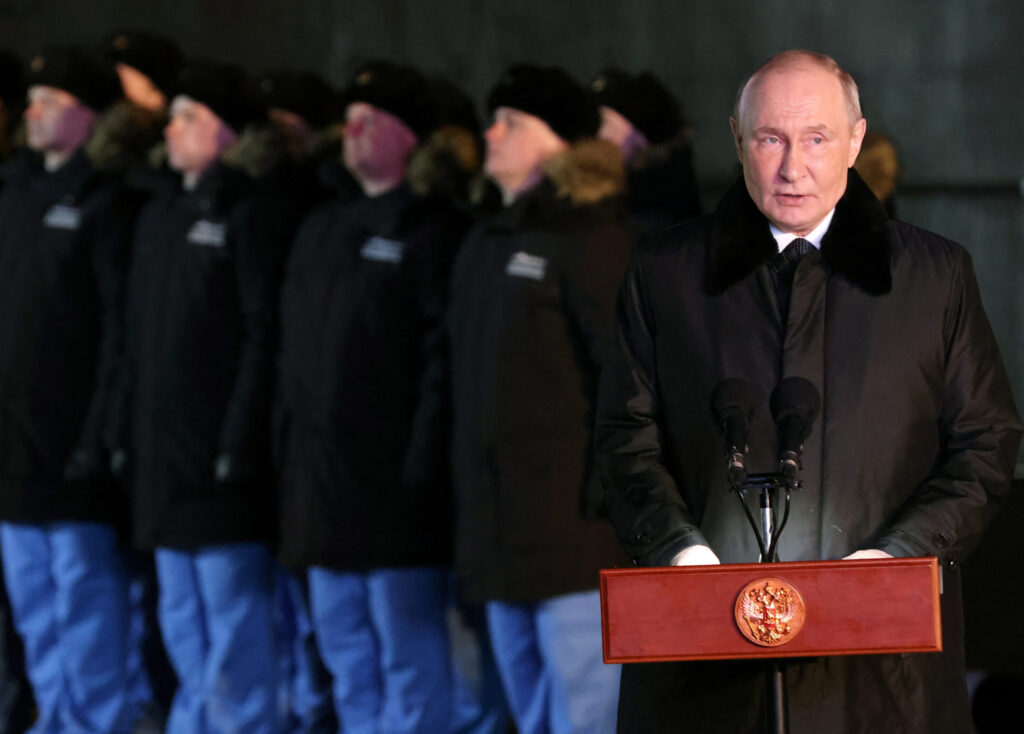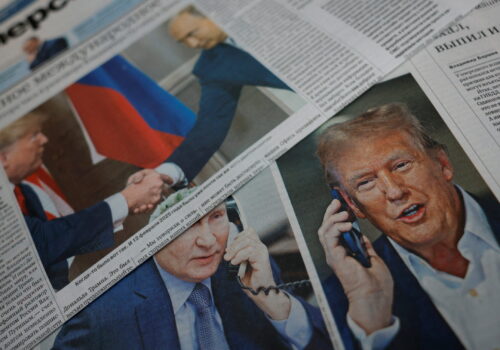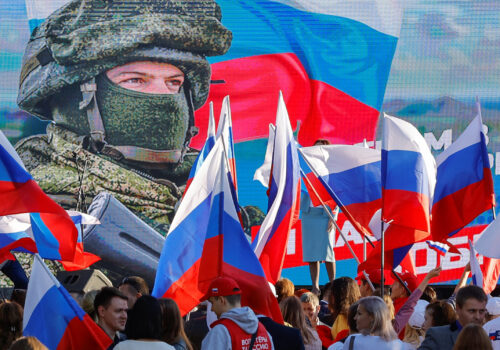As the new United States administration seeks to transform the country’s foreign policy, one of President Trump’s top priorities is a peace agreement to end the Russian war in Ukraine. However, there is a very real danger that the US leader’s eagerness to strike a deal with Vladimir Putin could lead to a flawed settlement that will undermine the foundations of international security for many years to come.
Trump aims to secure peace in Ukraine as part of a broader shift involving a reduced US commitment to Europe and a strategic pivot toward Asia. This goal is actually very much in line with longstanding United States foreign policy. However, with Putin’s Russia now an openly expansionist power and European nations dangerously weakened by decades of defense sector complacency, this is not the ideal time for an American withdrawal.
In the current climate of mounting international instability, maximum Western unity is required. This is essential in order to avert a descent into the geopolitical jungle and prevent the emergence of a new security environment shaped by the Kremlin where the rule of law is replaced by brute force. It is therefore in US interests to maintain Ukraine’s military strength as a bulwark against Russia while Europe rearms.
Stay updated
As the world watches the Russian invasion of Ukraine unfold, UkraineAlert delivers the best Atlantic Council expert insight and analysis on Ukraine twice a week directly to your inbox.
Putin has repeatedly signalled that he views the complete subjugation of Ukraine as only the first step toward reasserting Russian hegemony over the wider region. He has placed his entire country on a war footing, openly claims to be returning “historically Russian lands,” and declares his intention to establish a new multipolar world order. If Putin is allowed to succeed in Ukraine, his position will become far stronger, while Europe will be more vulnerable than ever. There will then be little to prevent him from achieving his wider objectives.
Trump’s obvious haste to exit Ukraine is now encouraging the Russian dictator to pursue his most maximalist war aims. These include the outright annexation of five Ukrainian regions representating around twenty percent of the entire country, and the international isolation of the remaining Ukrainian state, which would be left neutral, disarmed, and defenseless. In such circumstances, it would only be a matter of time before Putin completed his conquest.
The destruction of Ukraine would set a disastrous precedent that would undo many decades of progress in international relations and mark a return to the diplomatic standards of the nineteenth century, complete with empires, invasions, and annexations. Putin himself would be emboldened to acquire more “historically Russian lands,” while his fellow autocrats in Beijing, Tehran, and beyond would draw the obvious conclusions and follow suit. Failure to confront one aggressive dictatorship would give rise to many more.
Eurasia Center events

Some in Washington believe that by appeasing Putin in Ukraine, they can convince Russia to ally with the United States against China. This is dangerously naive and fails to appreciate the strength of the current strategic partnership between Moscow and Beijing. China has played an important supporting role in the invasion of Ukraine and sees the current war as an opportunity to undermine the West. As long as Russia can deliver geopolitical success, cooperation between the two countries will continue to deepen.
In contrast, Russian defeat in Ukraine would set off alarm bells in Moscow and Beijing, causing both countries to reassess the nature of their partnership. Many Russian leaders in particular would become increasingly concerned over their growing dependence on China. With this in mind, it would probably make more sense for US officials to maintain or even increase their support for Ukraine if they are serious about creating the long-term conditions for closer cooperation with Russia in the coming confrontation with China.
Perhaps the gravest and most far-reaching geopolitical consequence of a Putin-friendly peace in Ukraine would be the spread of nuclear weapons. In 1994, Ukraine gave up the world’s third-largest nuclear arsenal in exchange for security assurances from Russia, the US, and the UK. These assurances have since proved worthless. To make matters worse, Russia has repeatedly used nuclear blackmail during the past three years to intimidate Ukraine’s Western allies and enable the invasion.
The lessons from Ukraine’s unilateral nuclear disarmament and Russia’s subsequent nuclear bullying are painfully clear: Any country that wishes to avoid a similar fate must acquire nuclear weapons of their own. This grim reality is likely to spark a new nuclear arms race, with governments from Berlin and Warsaw to Seoul and Tokyo already reportedly exploring their options. If the US backs a pro-Russian peace deal in Ukraine, unprecedented nuclear proliferation will become virtually inevitable.
It is still far too early to pass judgment on Donald Trump’s efforts to end the war in Ukraine, but the potentially disastrous consequences of a bad deal are already clear. Any peace on Putin’s terms would discredit the entire Western world and signal the dawn of a dangerous new era in global affairs marked by mounting instability, international aggression, and the looming threat of nuclear war.
This calamitous outcome can be avoided by backing Ukraine militarily and providing the country with the kind of NATO-style security guarantees that can prevent further Russian aggression and secure peace in Europe. Anything less will merely serve as a pause before the next stage in Russia’s war against the West and the unraveling of the current world order.
Oleksandr Merezhko is a member of the Ukrainian Parliament for the Servant of the People Party and Chair of the Ukrainian Parliament’s Foreign Affairs Committee.
Further reading
The views expressed in UkraineAlert are solely those of the authors and do not necessarily reflect the views of the Atlantic Council, its staff, or its supporters.

The Eurasia Center’s mission is to enhance transatlantic cooperation in promoting stability, democratic values and prosperity in Eurasia, from Eastern Europe and Turkey in the West to the Caucasus, Russia and Central Asia in the East.
Follow us on social media
and support our work
Image: Russian President Vladimir Putin attends a launching ceremony of a nuclear-powered submarine named Perm, equipped with hypersonic Zircon, as he visits a nuclear-powered submarine Arkhangelsk in Murmansk, Russia. March 27, 2025. (Sputnik/Sergei Karpukhin/Pool via REUTERS)




